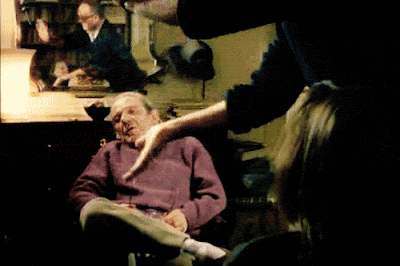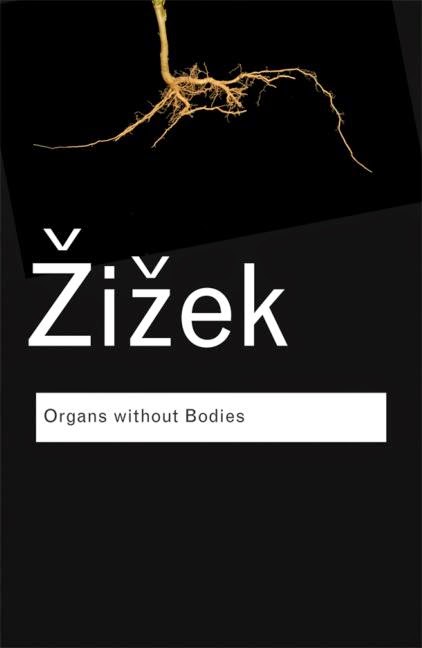“Capitalist realism insists on treating mental health as if it were a natural fact, like weather (but, then again, weather is no longer a natural fact so much as a political-economic effect). In the 1960s and 1970s, radical theory and politics (Laing, Foucault, Deleuze and Guattari, etc.) coalesced around extreme mental conditions such as schizophrenia, arguing, for instance, that madness was not a natural, but a political, category. But what is needed now is a politicization of much more common disorders. Indeed, it is their very commonness which is the issue: in Britain, depression is now the condition that is most treated by the NHS. In his book The Selfish Capitalist, Oliver James has convincingly posited a correlation between rising rates of mental distress and the neoliberal mode of capitalism practiced in countries like Britain, the USA and Australia. In line with James’s claims, I want to argue that it is necessary to reframe the growing problem of stress (and distress) in capitalist societies. Instead of treating it as incumbent on individuals to resolve their own psychological distress, instead, that is, of accepting the vast privatization of stress that has taken place over the last thirty years, we need to ask: how has it become acceptable that so many people, and especially so many young people, are ill?”
― Mark Fisher, Capitalist Realism: Is There No Alternative?
Showing posts with label Gilles Deleuze. Show all posts
Showing posts with label Gilles Deleuze. Show all posts
Deleuze and Psychology: Philosophical Provocations to Psychological Practices
An increasing number of scholars, students and practitioners of psychology are becoming intrigued by the ideas of Gilles Deleuze and of Felix Guattari. This book aims to be a critical introduction to these ideas, which have so much to offer psychology in terms of new directions as well as critique.
Deleuze was one of the most prominent philosophers of the 20th century and a figure whose ideas are increasingly influential throughout the humanities and social sciences. His work, particularly his collaborations with psychoanalyst Guattari, focused on the articulation of a philosophy of difference. Rejecting mainstream continental philosophy just as much as the orthodox analytical metaphysics of the English-speaking world, Deleuze proposed a positive and passionate alternative, bursting at the seams with new concepts and new transformations.
This book overviews the philosophical contribution of Deleuze including the project he developed with Guattari. It goes on to explore the application of these ideas in three major dimensions of psychology: its unit of analysis, its method and its applications to the clinic.
Deleuze and Psychology will be of interest to students and scholars of psychology and those interested in continental philosophy, as well as psychological practitioners and therapists.
See also:
Is pleasure a rotten idea, mired in negativity and lack, which should be abandoned in favor of a new concept of desire? Or is desire itself fundamentally a matter of lack, absence, and loss? This is one of the crucial issues dividing the work of Gilles Deleuze and Jacques Lacan, two of the most formidable figures of postwar French thought. Though the encounter with psychoanalysis deeply marked Deleuze’s work, we are yet to have a critical account of the very different postures he adopted toward psychoanalysis, and especially Lacanian theory, throughout his career. In The Trouble with Pleasure, Aaron Schuster tackles this tangled relationship head on. The result is neither a Lacanian reading of Deleuze nor a Deleuzian reading of Lacan but rather a systematic and comparative analysis that identifies concerns common to both thinkers and their ultimately incompatible ways of addressing them. Schuster focuses on drive and desire—the strange, convoluted relationship of human beings to the forces that move them from within—“the trouble with pleasure."
Book preview: The Trouble with Pleasure: Deleuze and Psychoanalysis
Psychoanalysis and Ecology at the Edge of Chaos: Complexity Theory, Deleuze|Guattari and Psychoanalysis for a Climate in Crisis
Buy Psychoanalysis and Ecology at the Edge of Chaos here. - Free delivery worldwide
This book argues that psychoanalysis has a unique role to play in the climate change debate through its placing emphasis on the unconscious dimensions of our mental and social lives. Exploring contributions from Freudian, Kleinian, Object Relations, Self Psychology, Jungian, and Lacanian traditions, the book discusses how psychoanalysis can help to unmask the anxieties, deficits, conflicts, phantasies and defences crucial in understanding the human dimension of the ecological crisis.
Yet despite being essential to studying environmentalism and its discontents, psychoanalysis still remains largely a 'psychology without ecology.' The philosophy of Deleuze and Guattari, combined with new developments in the sciences of complexity, help us to build upon the best of these perspectives, providing a framework able to integrate Guattari's 'three ecologies' of mind, nature and society. This book thus constitutes a timely attempt to contribute towards a critical dialogue between psychoanalysis and ecology.
Further topics of discussion include:
- ecopsychology and the greening of psychotherapy
- our ambivalent relationship to nature and the non-human
- complexity theory in psychoanalysis and ecology
- defence mechanisms against eco-anxiety and eco-grief
- Deleuze|Guattari and the three ecologies
- becoming-animal in horror and eco-apocalypse in science fiction films
- nonlinear ecopsychoanalysis.
In our era of anxiety, denial, paranoia, apathy, guilt, hope, and despair in the face of climate change, this book offers a fresh and insightful psychoanalytic perspective on the ecological crisis. As such this book will be of great interest to all those in the fields of psychoanalysis, psychology, philosophy, and ecology, as well as all who are concerned with the global environmental challenges affecting our planet's future.
Buy Psychoanalysis and Ecology at the Edge of Chaos here. - Free delivery worldwide
The Trouble with Pleasure: Deleuze and Psychoanalysis
Buy The Trouble with Pleasure here. - Free delivery worldwide
Is pleasure a rotten idea, mired in negativity and lack, which should be abandoned in favor of a new concept of desire? Or is desire itself fundamentally a matter of lack, absence, and loss? This is one of the crucial issues dividing the work of Gilles Deleuze and Jacques Lacan, two of the most formidable figures of postwar French thought. Though the encounter with psychoanalysis deeply marked Deleuze’s work, we are yet to have a critical account of the very different postures he adopted toward psychoanalysis, and especially Lacanian theory, throughout his career. In The Trouble with Pleasure, Aaron Schuster tackles this tangled relationship head on. The result is neither a Lacanian reading of Deleuze nor a Deleuzian reading of Lacan but rather a systematic and comparative analysis that identifies concerns common to both thinkers and their ultimately incompatible ways of addressing them. Schuster focuses on drive and desire—the strange, convoluted relationship of human beings to the forces that move them from within—“the trouble with pleasure."
Along the way, Schuster offers his own engaging and surprising conceptual analyses and inventive examples. In the “Critique of Pure Complaint” he provides a philosophy of complaining, ranging from Freud’s theory of neurosis to Spinoza’s intellectual complaint of God and the Deleuzian great complaint. Schuster goes on to elaborate, among other things, a theory of love as “mutually compatible symptoms”; an original philosophical history of pleasure, including a hypothetical Heideggerian treatise and a Platonic theory of true pleasure; and an exploration of the 1920s “literature of the death drive,” including Thomas Mann, Italo Svevo, and Blaise Cendrars.
Buy The Trouble with Pleasure here. - Free delivery worldwide
Deleuze and Desire
Buy Deleuze and Desire here. - Free delivery worldwide
The engagement of Deleuze with psychoanalysis has led to the development of a remarkable and highly influential theory about human desire. The most systematic account of this theory, crucial for anyone interested in the work of Deleuze and Guattari, can be found in the discussion of the dynamic genesis of sense, a pivotal part of Deleuze’s The Logic of Sense.
In Deleuze and Desire Piotrek Swiatkowski picks up the challenge to provide an ad literam commentary of this text. Swiatkowski makes use of a broad range of examples, from psychoanalytic case studies to art, literature, and film, and analyses in an accessible and clear way the impact of the work of psychoanalysts such as Melanie Klein on Deleuze.
Introducing Continental Philosophy: A Graphic Guide
Buy Introducing Continental Philosophy here. - Free delivery worldwide
Continental philosophy was initiated amid the revolutionary ferment of the 18th century, philosophers such as Kant and Hegel confronting the extremism of the time with theories that challenged the very formation of individual and social consciousness.
Covering the great philosophers of the modern and postmodern eras – from Nietzsche, Heidegger, Derrida and Deleuze right to up Agamben and Žižek – and philosophical movements from German idealism to deconstruction and feminism – Christopher Kul-Want and Piero brilliantly elucidate some of the most thrilling and powerful ideas ever to have been discussed.
Buy Introducing Continental Philosophy here. - Free delivery worldwide
Free Ebook: Organs without Bodies: On Deleuze and Consequences by Slavoj Zizek
In his inimical style, Zizek links Deleuze's work with both Oedipus and Hegel, figures from whom the French philosopher distanced himself. Zizek turns some Deleuzian concepts around in order to explore the 'organs without bodies' in such films as Fight Club and the works of Hitchcock. Finally, he attacks what he sees as the 'radical chic' Deleuzians, arguing that such projects turn Deleuze into an ideologist of today's 'digital capitalism'. With his brilliant energy and fearless argumentation, Zizek sets out to restore a truer, more radical Deleuze than the one we thought we knew.
Read online here:
Organs without Bodies: On Deleuze and Consequences
1. The Reality of the Virtual
2. Becoming versus History
3. Becoming-machine
4. le siècle empiriomoniste
5. Quasi-Cause
Organs without Bodies: On Deleuze and Consequences by Slavoj Zizek
 In this deliciously polemical work, a giant of cultural theory immerses himself in the ideas of a giant of French thought. In his inimical style, Zizek links Deleuze's work with both Oedipus and Hegel, figures from whom the French philosopher distanced himself. Zizek turns some Deleuzian concepts around in order to explore the 'organs without bodies' in such films as Fight Club and the works of Hitchcock. Finally, he attacks what he sees as the 'radical chic' Deleuzians, arguing that such projects turn Deleuze into an ideologist of today's 'digital capitalism'. With his brilliant energy and fearless argumentation, Zizek sets out to restore a truer, more radical Deleuze than the one we thought we knew.
In this deliciously polemical work, a giant of cultural theory immerses himself in the ideas of a giant of French thought. In his inimical style, Zizek links Deleuze's work with both Oedipus and Hegel, figures from whom the French philosopher distanced himself. Zizek turns some Deleuzian concepts around in order to explore the 'organs without bodies' in such films as Fight Club and the works of Hitchcock. Finally, he attacks what he sees as the 'radical chic' Deleuzians, arguing that such projects turn Deleuze into an ideologist of today's 'digital capitalism'. With his brilliant energy and fearless argumentation, Zizek sets out to restore a truer, more radical Deleuze than the one we thought we knew.
Subscribe to:
Posts (Atom)
 |
| Bartleby, the Scrivener: “I would prefer not to.” |










